新版《环境保护法》(双语)
中国日报网 2014-05-20 13:45

第四章 防治污染和其他公害
Chapter IV Prevention and Control of Pollution and Other Public Hazards
第四十条 国家促进清洁生产和资源循环利用。
Article 40. The State shall promote clean production and resources recycling.
国务院有关部门和地方各级人民政府应当采取措施,推广清洁能源的生产和使用。
Relevant departments of the State Council and local people’s governments at various levels shall adopt measures to promote the production and use of clean energy.
企业应当优先使用清洁能源,采用资源利用率高、污染物排放量少的工艺、设备以及废弃物综合利用技术和污染物无害化处理技术,减少污染物的产生。
Enterprises shall give priority to the introduction of clean energy, adopt process and facilities with higher resource efficiency as well as low pollution discharges, and apply comprehensive waste utilization technologies and waste disposal technologies to reduce pollutant generation.
第四十一条 建设项目中防治污染的设施,应当与主体工程同时设计、同时施工、同时投产使用。防治污染的设施应当符合经批准的环境影响评价文件的要求,不得擅自拆除或者闲置。
Article 41. Installations for the prevention and control of pollution at a construction project must be designed, built and commissioned together with the principal part of the project. Installations of the pollution prevention and control facility shall comply with the requirements of the approved environmental impact assessment report, and shall not be dismantled or left idle without authorization.
第四十二条 排放污染物的企业事业单位和其他生产经营者,应当采取措施,防治在生产建设或者其他活动中产生的废气、废水、废渣、医疗废物、粉尘、恶臭气体、放射性物质以及噪声、振动、光辐射、电磁辐射等对环境的污染和危害。
Article 42. Enterprises, public institutions and other producers and business operators that discharge pollutants shall take measures to prevent and control the environmental pollution caused by waste gas, waste water, waste residues, dust, malodorous gases, radioactive substances and noise, vibration and electromagnetic radiation generated during production, construction or other activities.
排放污染物的企业事业单位,应当建立环境保护责任制度,明确单位负责人和相关人员的责任。
Enterprises and public institutions that discharge pollutants shall each establish an environmental protection accountability system to identify the responsibilities of their persons-in-charge and relevant staff.
重点排污单位应当按照国家有关规定和监测规范安装使用监测设备,保证监测设备正常运行,保存原始监测记录。
Key pollutant-discharging entities shall install and use monitoring equipment in accordance with relevant national provisions and monitoring guidelines, guarantee their normal operations, and shall properly keep the original monitoring records.
严禁通过暗管、渗井、渗坑、灌注或者篡改、伪造监测数据,或者不正常运行防治污染设施等逃避监管的方式违法排放污染物。
Discharging of pollutants by setting up concealed drains, making use of seepage wells or pits, perfusion, tampering or forgery of monitoring data, abnormal operating of pollution prevention and control facilities, or any other means that evade regulation, is strictly prohibited.
第四十三条 排放污染物的企业事业单位和其他生产经营者,应当按照国家有关规定缴纳排污费。排污费应当全部专项用于环境污染防治,任何单位和个人不得截留、挤占或者挪作他用。
Article 43. Enterprises, public institutions and other producers and business operators that discharge pollutants shall pay pollution fees in accordance with relevant state provisions. Pollution fees collected shall be exclusively used for environmental pollution prevention and control, and shall not be withheld, misappropriated or diverted for any other purposes by any entity or individual.
依照法律规定征收环境保护税的,不再征收排污费。
Pollution fee does not apply to those that are subject to environmental protection tax.
第四十四条 国家实行重点污染物排放总量控制制度。重点污染物排放总量控制指标由国务院下达,省、自治区、直辖市人民政府分解落实。企业事业单位在执行国家和地方污染物排放标准的同时,应当遵守分解落实到本单位的重点污染物排放总量控制指标。
Article 44. The State shall adopt total emission control system for key pollutants. The total discharge quota of key pollutants is assigned by the State Council, and allocated to provincial, autonomous region and provincial-level municipality governments for implementation. While conforming to national and local pollutants discharge standards, enterprises and institutions shall also fulfill the total emission control quota for key pollutants as assigned to them.
对超过国家重点污染物排放总量控制指标或者未完成国家确定的环境质量目标的地区,省级以上人民政府环境保护主管部门应当暂停审批其新增重点污染物排放总量的建设项目环境影响评价文件。
For regions that fail to fulfill the total emission control quota or achieve the environmental quality targets assigned by the State, environmental departments at or above provincial level governments shall suspend the EIA approval for their new construction projects that may cause increase of the total key pollutants emission in the region.
第四十五条 国家依照法律规定实行排污许可管理制度。
Article 45. The State shall adopt pollution administrative permit system in accordance with the law.
实行排污许可管理的企业事业单位和其他生产经营者应当按照排污许可证的要求排放污染物;未取得排污许可证的,不得排放污染物。
Enterprises, public institutions and other producers and business operators pursuant to pollution permit system shall discharge pollutants in accordance with the requirements of their permits; No pollutant discharge is allowed without a pollutant discharge permit.
第四十六条 国家对严重污染环境的工艺、设备和产品实行淘汰制度。任何单位和个人不得生产、销售或者转移、使用严重污染环境的工艺、设备和产品。
Article 46. The State shall implement elimination system for pollution-intensive techniques, equipment and products. No entities or individuals shall produce, sell, transfer or use techniques, equipment and products that seriously pollute the environment. 禁止引进不符合我国环境保护规定的技术、设备、材料和产品。
Technology, equipment, material or product that fails to meet national environmental protection standards are prohibited of importation.
第四十七条 各级人民政府及其有关部门和企业事业单位,应当依照《中华人民共和国突发事件应对法》的规定,做好突发环境事件的风险控制、应急准备、应急处置和事后恢复等工作。
Article 47. The people's governments at various levels, their relevant departments, enterprises and public institutions shall, in accordance with the Emergency Response Law of the People's Republic of China, conduct proper risk control, emergency preparation, emergency response and post-emergency restoration for environmental accidents.
县级以上人民政府应当建立环境污染公共监测预警机制,组织制定预警方案;环境受到污染,可能影响公众健康和环境安全时,依法及时公布预警信息,启动应急措施。
The people’s governments at or above county level shall establish public monitoring and warning system for environmental pollution, and organize the development of early warning scheme; in the event of pollution emergency with impact to public health and environmental security, timely announcement of warning information and emergency response measures shall be taken by the competent government administrations in accordance with the law.
企业事业单位应当按照国家有关规定制定突发环境事件应急预案,报环境保护主管部门和有关部门备案。在发生或者可能发生突发环境事件时,企业事业单位应当立即采取措施处理,及时通报可能受到危害的单位和居民,并向环境保护主管部门和有关部门报告。
Enterprises and public institutions shall formulate emergency response plans in accordance with relevant national regulations to submit to competent environmental protection administrations and other relevant departments for record-filing. In case of occurrence (or potential occurrence) of environmental accidents, enterprises and institutions shall take immediate measures to handle the situation, timely inform units and residents that are potentially affected and report to the competent environmental authorities and other relevant departments.
突发环境事件应急处置工作结束后,有关人民政府应当立即组织评估事件造成的环境影响和损失,并及时将评估结果向社会公布。
After the completion of the emergency response work, the relevant people's government shall immediately organize the assessment of the environmental impacts and loss, and disclose the assessment results to the public in a timely manner."
第四十八条 生产、储存、运输、销售、使用、处置化学物品和含有放射性物质的物品,应当遵守国家有关规定,防止污染环境。
Article 48. The production, storage, transportation, sale and use of toxic chemicals and materials containing radioactive substances shall comply with the relevant state provisions so as to prevent environmental pollution.
第四十九条 各级人民政府及其农业等有关部门和机构应当指导农业生产经营者科学种植和养殖,科学合理施用农药、化肥等农业投入品,科学处置农用薄膜、农作物秸秆等农业废弃物,防止农业面源污染。
Article 49. The people's governments at various levels and their agriculture and other relevant departments and agencies shall guide agricultural producers and operators to conduct scientific cultivation and plantation, rationally apply cultivating additions such as pesticides and fertilizers, and properly handle agricultural wastes including agricultural films and crop straw and prevent non-point sources agricultural pollution.
禁止将不符合农用标准和环境保护标准的固体废物、废水施入农田。施用农药、化肥等农业投入品及进行灌溉,应当采取措施,防止重金属和其他有毒有害物质污染环境。
It is prohibited to apply solid waste and wastewater that do not conform to standards on agricultural use and environmental protection to farmland. When conducting pesticides, chemical fertilizers and other cultivating additions or irrigating, measures shall be taken to prevent pollution from heavy metals and other toxic and hazardous substances.
畜禽养殖场、养殖小区、定点屠宰企业等的选址、建设和管理应当符合有关法律法规规定。从事畜禽养殖和屠宰的单位和个人应当采取措施,对畜禽粪便、尸体和污水等废弃物进行科学处置,防止污染环境。
The site selection, construction and management of livestock and poultry farms, breeding zones, designated slaughtering enterprises shall be in compliance with laws and regulations. Entities and individuals engaged in livestock poultry breeding and slaughtering shall take effective measures to dispose of manure and carcasses of livestock, sewage and other wastes in a scientific manner to prevent environmental pollution.
县级人民政府负责组织农村生活废弃物的处置工作。
The people's governments at the county level shall be responsible for organizing the disposal of rural household waste.
第五十条 各级人民政府应当在财政预算中安排资金,支持农村饮用水水源地保护、生活污水和其他废弃物处理、畜禽养殖和屠宰污染防治、土壤污染防治和农村工矿污染治理等环境保护工作。
Article 50. The people's governments at various levels shall allocate funds in their fiscal budgets to support protection of rural drinking water sources, treatment of domestic sewage and other waste, pollution prevention and control for livestock and poultry breeding and slaughtering, prevention and control of soil pollution, management of rural industrial and mining pollution and other environmental protection work.
第五十一条 各级人民政府应当统筹城乡建设污水处理设施及配套管网,固体废物的收集、运输和处置等环境卫生设施,危险废物集中处置设施、场所以及其他环境保护公共设施,并保障其正常运行。
Article 51. The people's governments at various levels shall, in a coordinated manner, plan for treatment facilities and supporting pipeline networks for urban and rural construction sewage, environmental and sanitary facilities such as those for the collection, transportation and disposal of solid waste, centralized facilities and sites for hazardous waste disposal, as well as other public facilities for environmental protection, and ensure the normal operations thereof.
第五十二条 国家鼓励投保环境污染责任保险。
Article 52 The State encourages participation in environment pollution liability insurance.









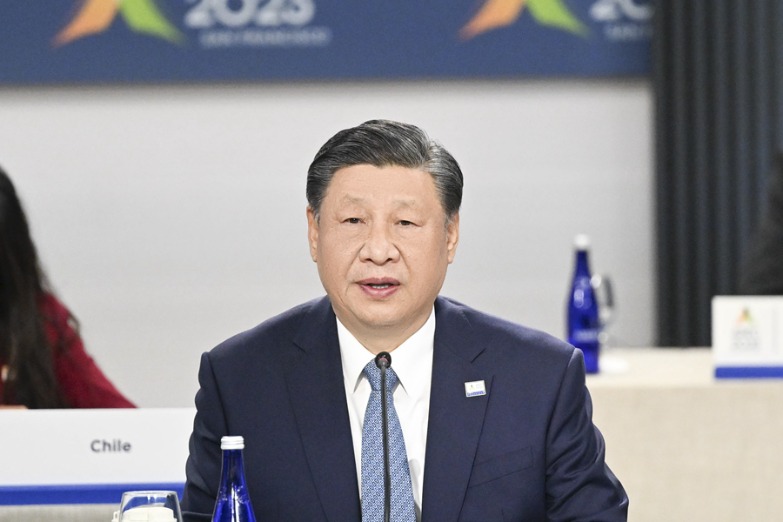
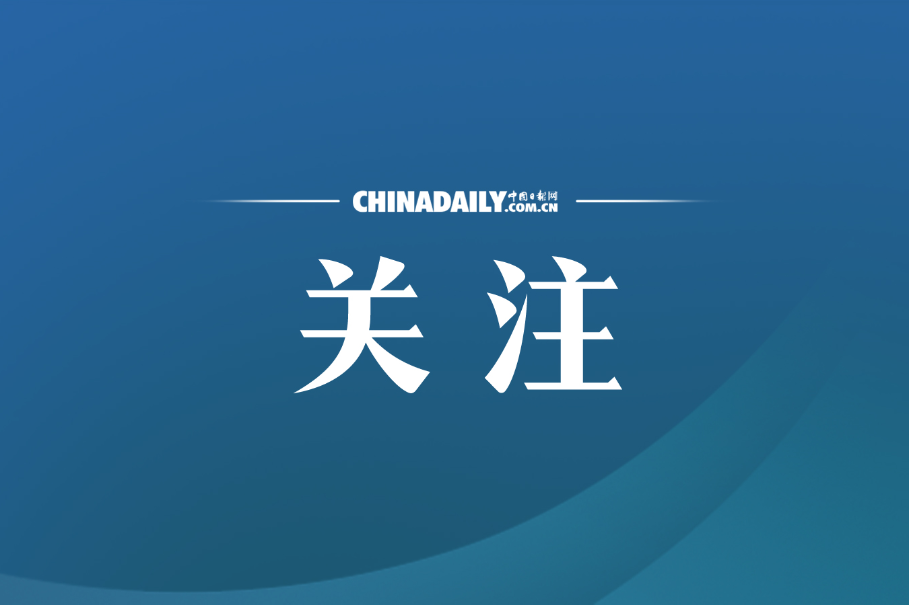
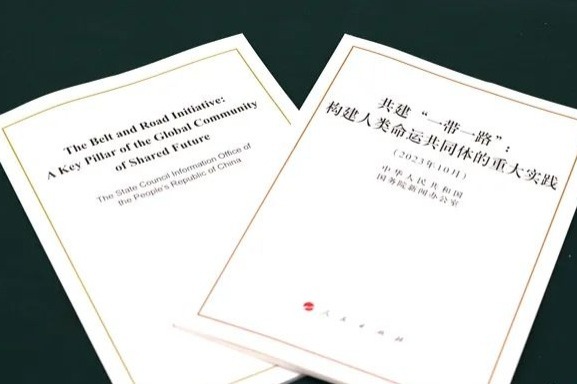
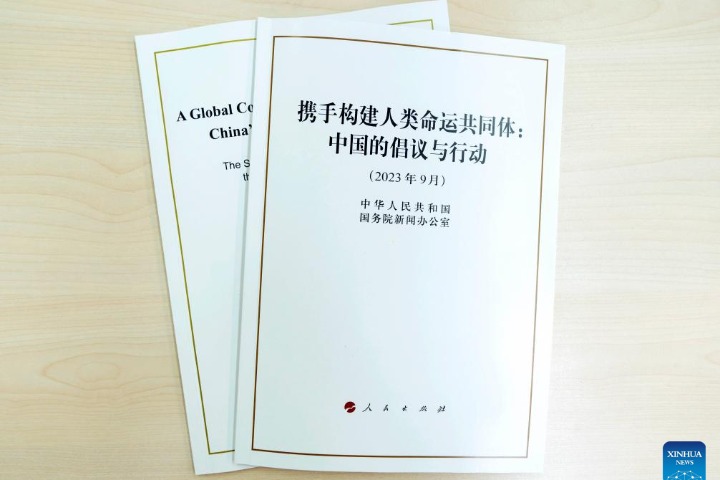
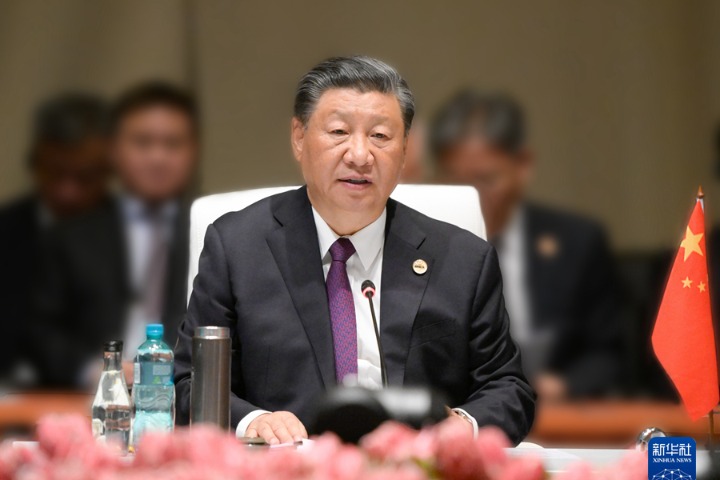



 英语点津微信
英语点津微信 双语小程序
双语小程序